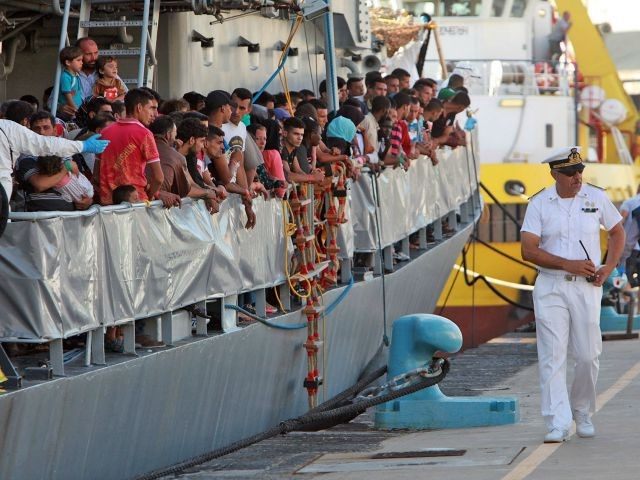Following surveillance work over the last three months, the European Union (EU) has announced naval operations will begin to arrest people smugglers at sea in October.
The EU’s High Representative for Foreign Affairs and Security Policy, Federica Mogherini, announced yesterday that naval operations in the Mediterranean will begin capturing people smugglers from 7 October, reports EUobserver.
The move comes as the second phase of an operation which began in June with surveillance work (“phase one”). According to Mogherini the EU now has a complete picture of people smuggler networks.
Mogherini was speaking in Rome at the headquarters of the EUnavfor Med naval operation. She said:
“The political decision has been taken, the assets are ready. We’ll be able to board, search, seize vessels in international waters, [and] suspected smugglers and traffickers apprehended will be transferred to the Italian judicial authorities.”
Mogherini added that 17 Libyan and three Egyptian boats were recently identified as being ripe for interception if “phase two” was already underway.
There is also a “phase three” envisaged – namely operations in Libyan waters and on Libyan coasts. Enacting that phase requires UN Security Council or Libyan government approval and there will be talks to that end at the UN assembly in New York next week.
The move comes, however, at a time when the focus for migrant flows has moved from the Mediterranean to the land-based Greece-Balkan route which is fast becoming the principal pathway for reaching the EU.
More than 300,000 migrants have reached Europe via the sea route this year, according to the United Nations, including 200,000 from Turkey to Greece and 110,000 mostly from Libya to Italy (EUnavfor Med’s target area). But Croatia, Slovenia, Serbia and Hungary have all been affected by land-based migrant movement, and most recently Finnish authorities have even identified people arriving via Russia.
As such some say the sea-based operation will not affect overall migrant numbers in any meaningful way. Indeed some predict adverse effects with warnings of migrant deaths if smuggler boats are engaged at sea and say the EU should instead work alongside north African governments to break up the smuggling gangs at source.

COMMENTS
Please let us know if you're having issues with commenting.